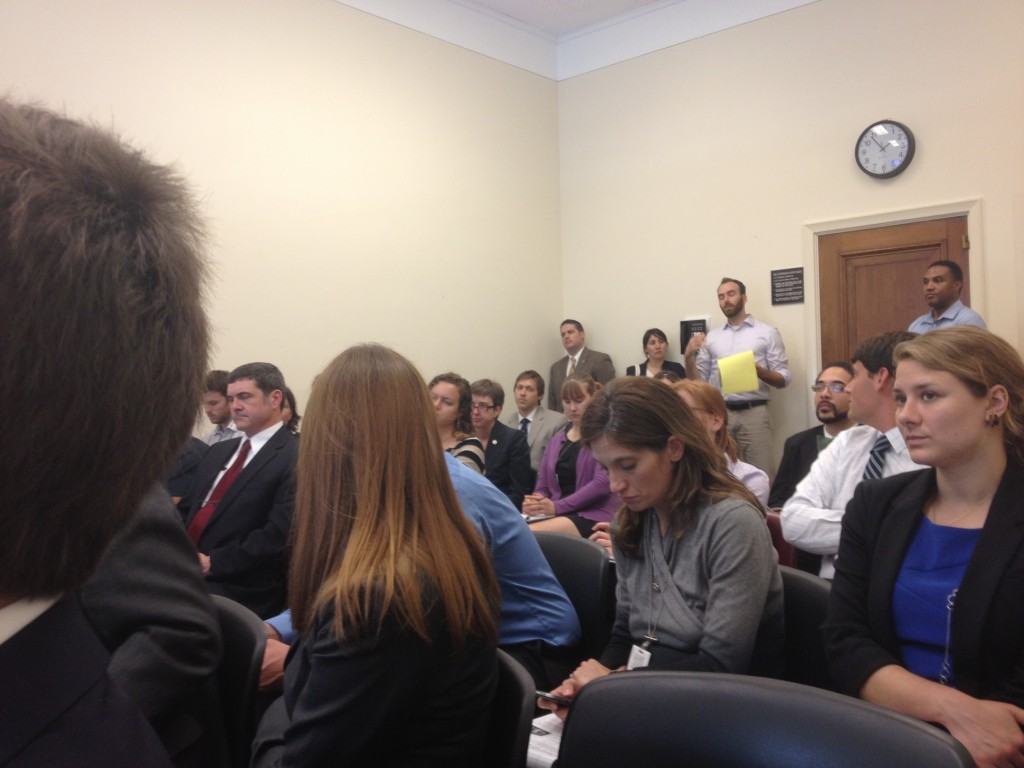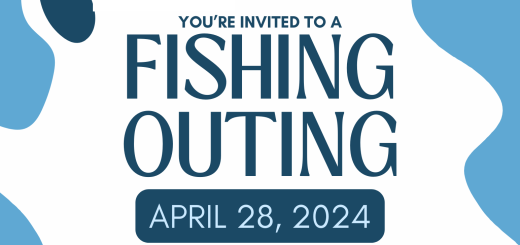The Potomac Chapter’s Climate Change and Fisheries
Climate Change and Fisheries presented by the American Fisheries Society and the Potomac Chapter of AFS was held on May 9, 2013, in the Rayburn Building in Washington, DC.
Hosts: Ward Slacum (VERSAR) and Sarah Glaser (Virginia Institute of Marine Science)
Fisheries and climate are intrinsically linked. In 2011, marine fisheries supported 1.7 million jobs and created $199 billion in sales for the U.S. Annually, 33 million recreational anglers generate $4 billion in state and federal tax revenue. But right now, climate change is affecting fisheries productivity. Migration and spawning patterns are changing, biodiversity is being affected, and aquatic “dead zones” are increasing.
AFS Capitol Hill Climate Change and Fisheries Briefing (PDF)
AFS recommends:
1. Reductions in greenhouse gas emissions
2. Water conservation and watershed protection
3. Partnerships to integrate fish and wildlife management
4. Restoring historic hydrologic regimes to promote fish movement
5. Education about the effects of climate on fisheries
6. Programs to evaluate local effects of climate change on fisheries
7. Management activities that reduce ecosystem stressors
8. Encouraging research activities to characterize climate effects
9. Dedicated funding for climate legislation that includes conservation of fish and water resources
Photo 1:
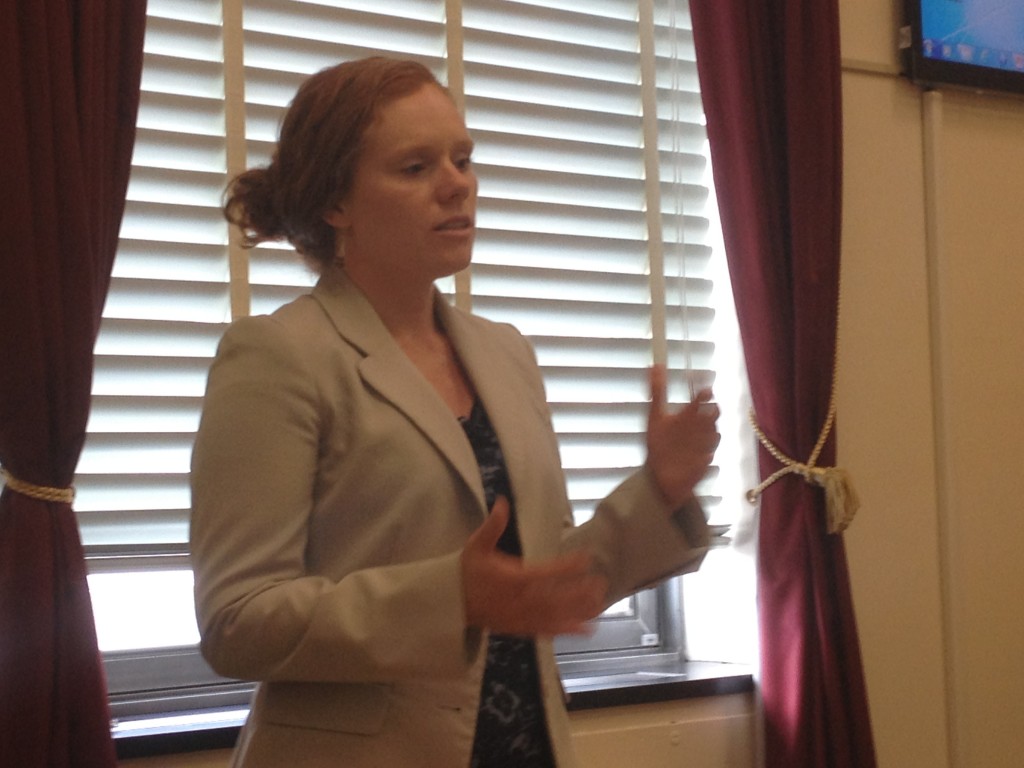
Cora Campbell, commissioner of Alaska Fish and Wildlife, discusses climate change in DC during an American Fisheries Society / Potomac Chapter summit in the Rayburn Building.
Photo 2:
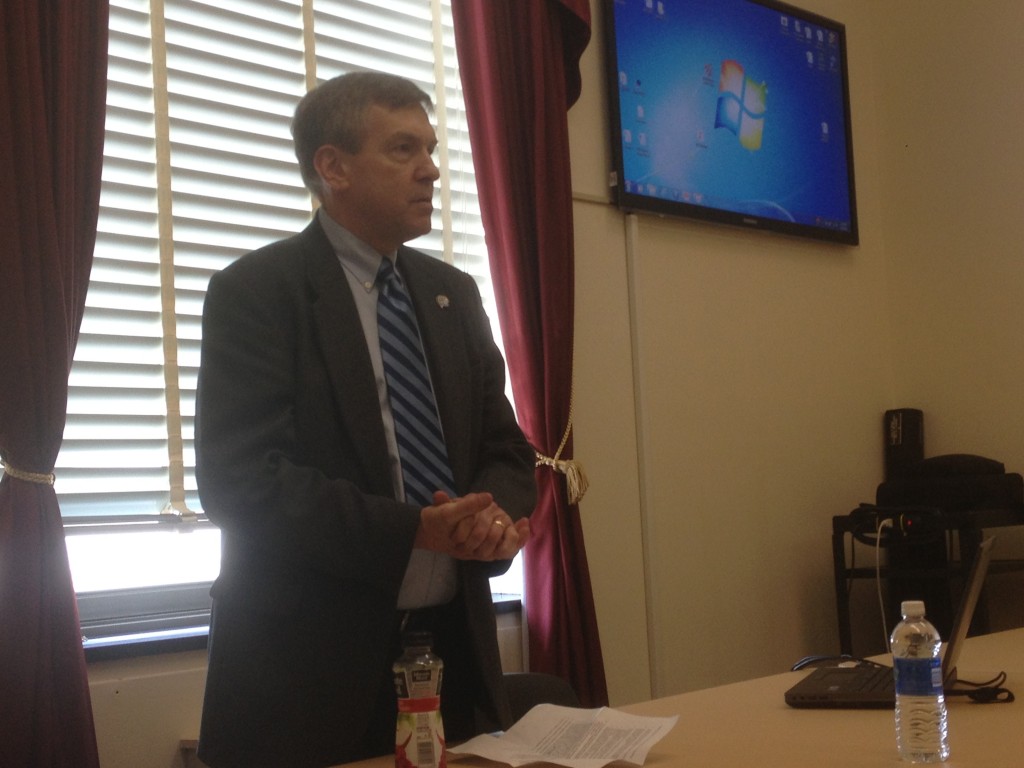
Then-president, John Boreman, opens the American Fisheries Society/Potomac Chapter discussion on climate change in the Rayburn Building on Capitol Hill in DC. AFS in Action!
Members of AFS have been acutely aware of how climate change is already affecting our aquatic and marine ecosystems, and our predictive modeling forecasts much more serious threats…. As you set our nation’s course for the next four years, we urge you and your Administration to support science, address the realities of global warming, and further expand efforts to move a clean energy economy forward in the United States. As fisheries scientists and also concerned citizens, we offer our assistance in helping you redirect the Nation from a carbon-based consumptive economy to a more sustainable one.
~ Letter to President Barack Obama from AFS President Dr. John Boreman, Jan. 17, 2013
AFS Capitol Hill Climate Change and Fisheries Briefing (PDF)
Photo 3:
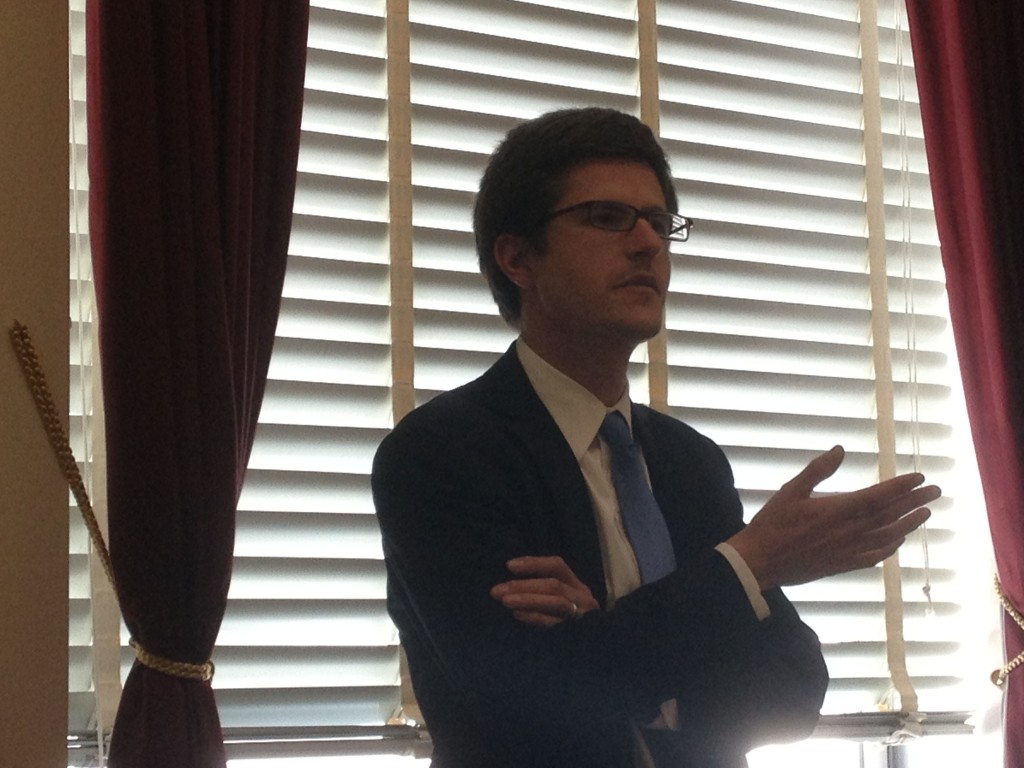
Malin Pinsky, of Princeton, discusses climate change at the Potomac Chapter / American Fisheries Society summit in the Rayburn Building in DC.
Photo 4:
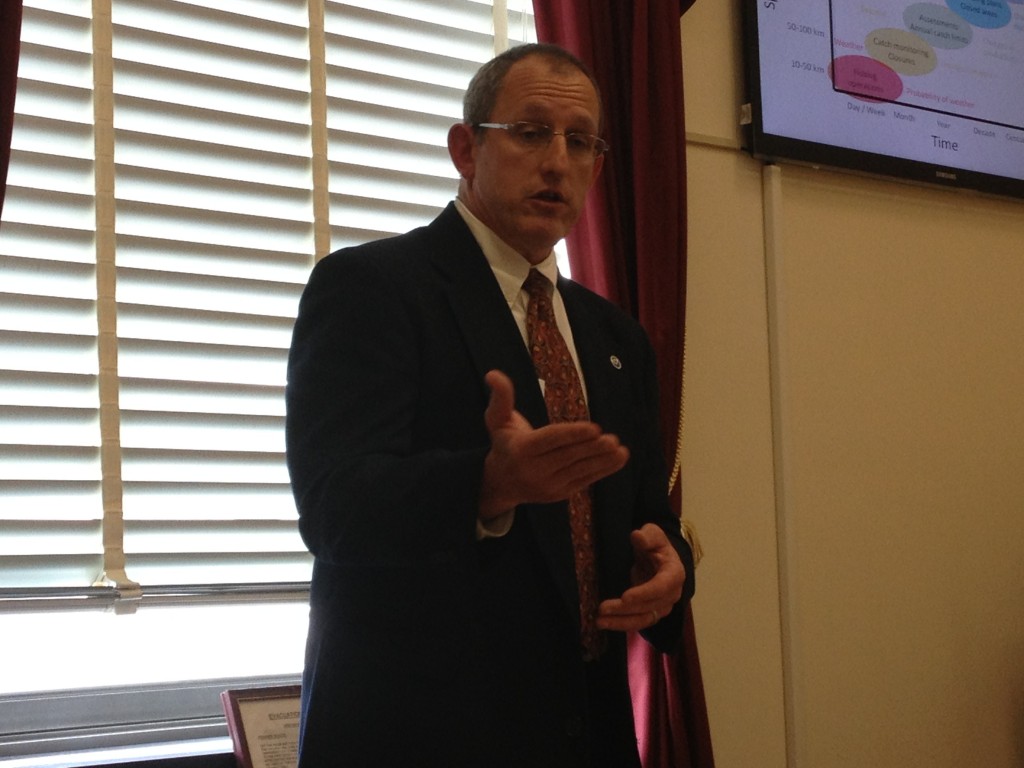
John Hare, of NOAA, discusses climate change and migration at the Potomac Chapter of AFS summit in DC.
Photo 5:
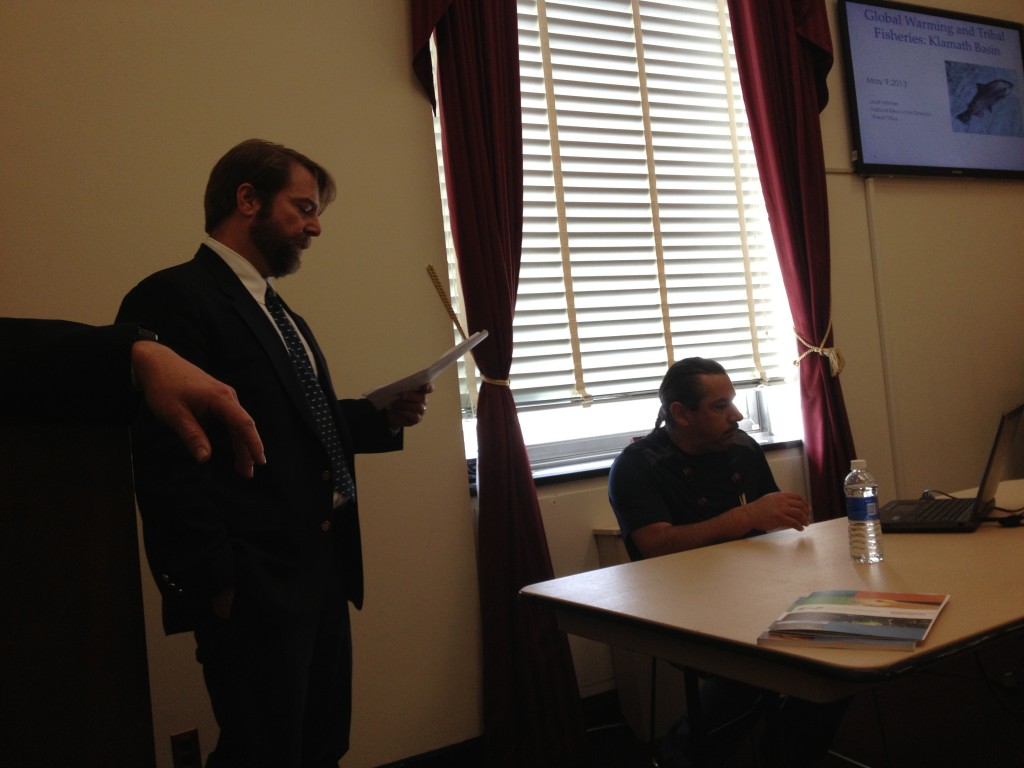
Ward Slacum, president of the American Fisheries Society Potomac Chapter addresses the crowd at the DC summit on climate change.
Photo 6:
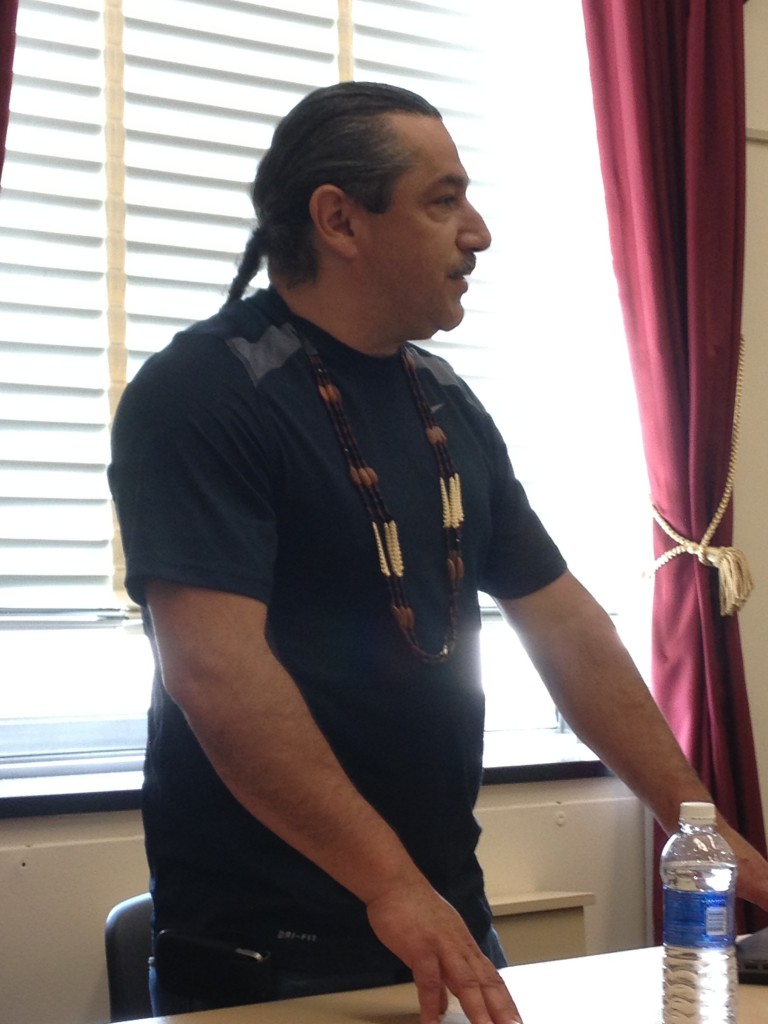
Leaf Hillman of the Karuk Tribe in California discusses climate change at the Potomac Chapter of AFS summit in DC.
Photo 7:

